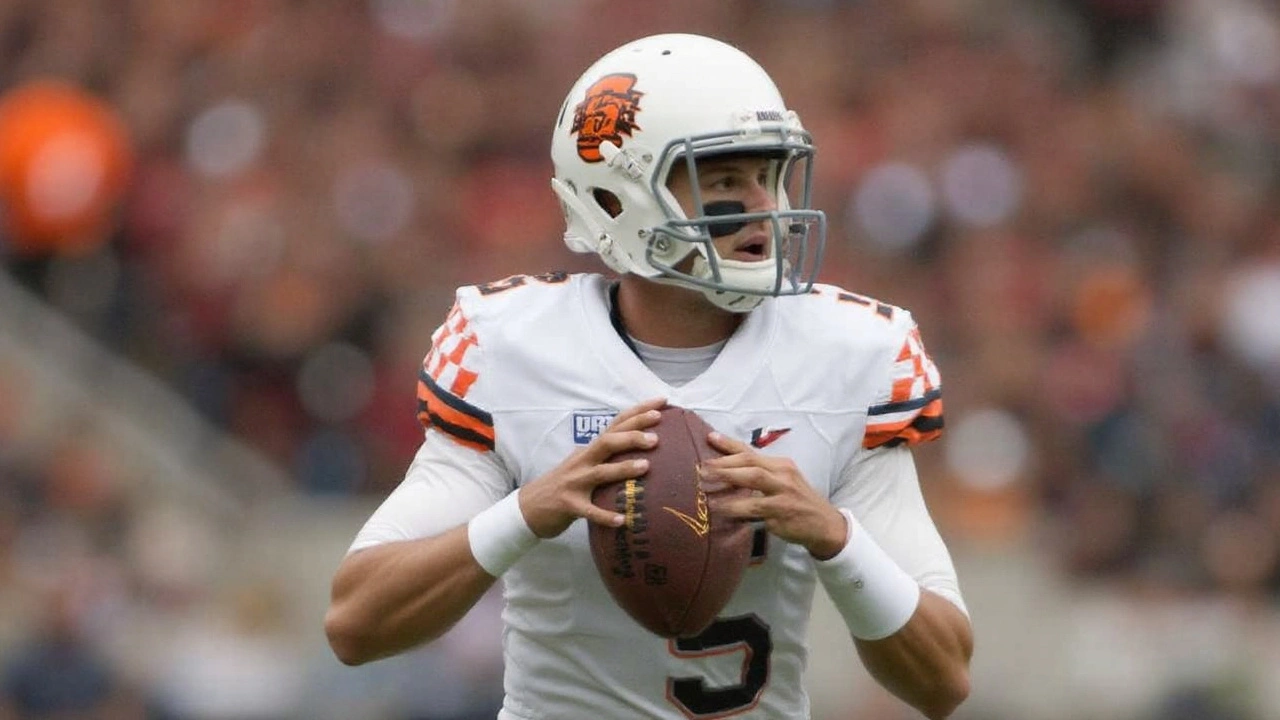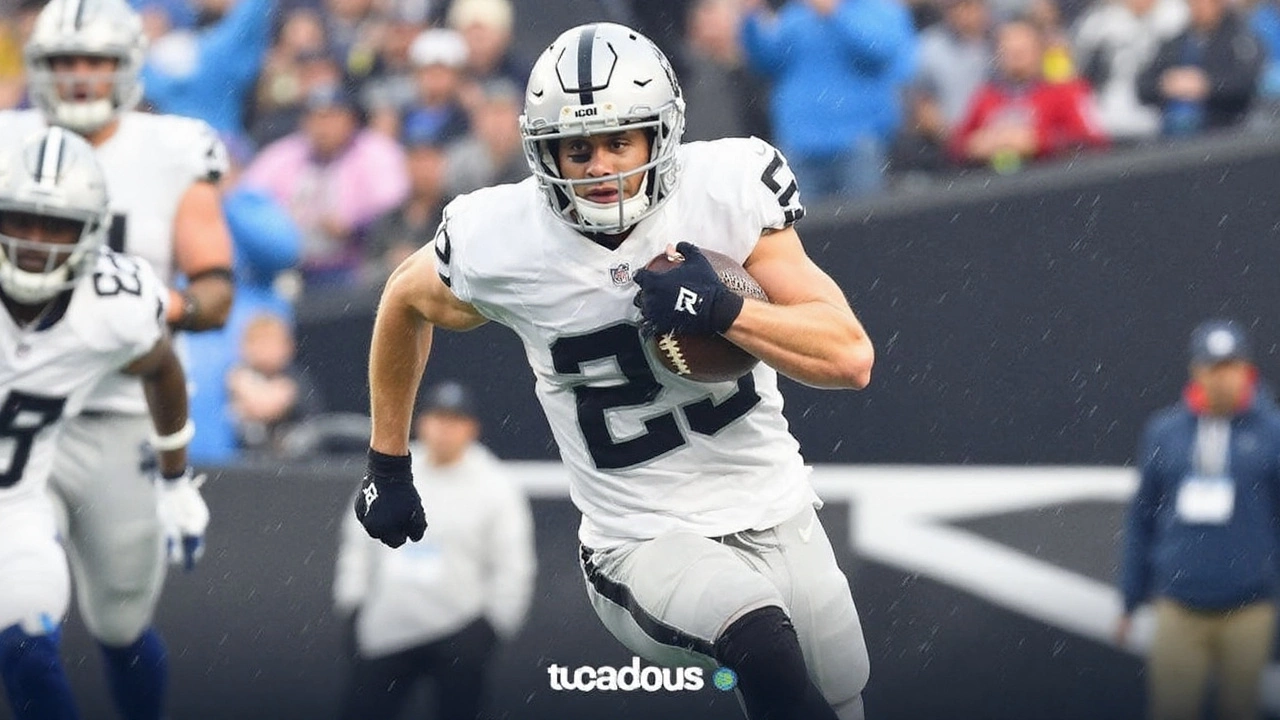Chargers seize control early in Las Vegas
The scoreline says businesslike, but the tone was set fast. The Los Angeles Chargers left Allegiant Stadium with a 20-9 win over the Las Vegas Raiders on Monday Night Football, a result built on clean offense, opportunistic defense, and a turnover avalanche the home team never escaped. As 3.5-point favorites at Caesars, Los Angeles covered without sweating late drama, cruising behind a 17-6 halftime cushion and a fourth quarter that turned into clock management.
If you were waiting for a late Raiders push, it never arrived. The Chargers banked 10 points in the first quarter, stacked seven more in the second, and then throttled down. The Raiders managed just three points in each of the first two quarters, got blanked in the third, and added a cosmetic field goal late. The total landed at 29 points. The story wasn’t fireworks. It was control.
Justin Herbert didn’t chase numbers. He didn’t have to. He finished 19-of-27 for 242 yards and two touchdowns, then chipped in nine carries for 31 yards to keep the sticks moving whenever the pocket tightened. It was efficient, measured football—no hero ball, no giveaways. Herbert’s night was best summed up by the way he spread the ball and let his receivers win in space, with drive scripts that felt tailored to protect a lead rather than chase one.
The spark came from Quentin Johnston, who turned three catches into 71 yards and a touchdown. He wasn’t peppered with targets, but he made them count—explosive gains at the right moments, the kind that shift field position and force a defense to back off. That vertical element forced the Raiders to pick their poison, and it opened stop-and-start lanes for the run game and quick-game concepts that became the backbone of the second half.
On the other sideline, it unraveled early and kept sliding. Raiders quarterback Gardner Smith went 24-of-43 for 180 yards with three interceptions, a line that tells you as much about the Chargers’ secondary as it does about a misfiring Las Vegas passing plan. The coverage looks were layered and patient—rallying to the ball, squeezing the middle, and forcing late throws that became turnover chances. Three picks is back-breaking when you don’t have explosive plays to offset them.
Las Vegas never established a platform on the ground either. Ashton Jeanty led the way with 11 carries for 43 yards—solid effort, no room to breathe. Without a consistent run threat or downfield strikes, the Raiders lived in second-and-long and third-and-long. That’s when the pass rush and disguised coverage become a vice. Jakobi Meyers fought for yards and finished with six catches for 68, but most of those were underneath or contested. It was survival mode, not a rhythm offense.
Score by quarters told the shape of it: Chargers 10-7-3-0, Raiders 3-3-0-3. The brief third-quarter window—when Los Angeles managed a field goal and nothing more—never turned into a momentum swing. The Chargers’ defense kept the lid on, and the offense shifted into a chew-the-clock groove that snuffed out variance. If you were waiting for a quick-strike drive to make it a one-possession game, the Raiders never created the field position or chunk plays to spark it.
One subplot mattered then and could matter more later: Khalil Mack exited early with an elbow injury. He was ruled out and will undergo imaging. Beyond the sacks and edge presence, Mack’s value is down-to-down disruption and the attention he demands. If this is a multi-week absence, it reshapes how the Chargers generate pressure and how they close games with a lead. On Monday night, the back end cleaned up the mistakes, but long term you don’t want to live on picks.
There was also the unexpected cameo that set social media buzzing: Tom Brady, the Raiders’ minority owner, shown on the Monday Night Football broadcast wearing a headset in the team’s coaching booth. It raised eyebrows—not because anyone thought he was calling plays, but because optics like that blur lines. Teams often have guests and executives on headsets for listening, not directing. Still, it became a talking point layered onto a rough offensive night and a fan base searching for answers.
Speaking of missing pieces, pregame chatter centered on tight end Brock Bowers’ knee and whether he’d be his usual explosive self. Las Vegas didn’t create the kind of seam or play-action threats that stress safeties and reset how defenses align. Whether that’s health, usage, or the flow of the game, the Raiders lacked an easy-button play—something to flip a drive and calm things down after turnovers.
From the opening series, the Chargers played like a team that trusted its plan. Early down throws were crisp and on time. The run game wasn’t dominant, but it was functional—enough to keep the defense honest and let Herbert work the edges and intermediate routes. Protection didn’t have to be perfect. It just had to be good enough to avoid negative plays, and for most of the night, it was.
Defensively, the Chargers were patient. They didn’t chase sacks at the expense of leverage. They flooded throwing lanes, tackled soundly, and made the Raiders piece together long fields without mistakes. That’s a hard way to live for any offense, and on a night when Gardner Smith was pressing, those mistakes came in bunches.
By the fourth quarter, the strategy was obvious—lean on the defense, win the field position game, and make the clock the co-star. It’s not a headline-friendly approach, but with a double-digit lead on the road in a division game, it’s how pros finish the night. The Chargers didn’t need a statement drive. They needed clean exchanges, safe throws, and a punt team that could pin the Raiders deep. Check, check, and check.
- Final: Chargers 20, Raiders 9
- Halftime: Chargers 17, Raiders 6
- Justin Herbert: 19/27, 242 yards, 2 TD; 9 rushes, 31 yards
- Quentin Johnston: 3 catches, 71 yards, TD
- Gardner Smith: 24/43, 180 yards, 3 INT
- Ashton Jeanty: 11 carries, 43 yards
- Jakobi Meyers: 6 catches, 68 yards
- Turnovers: Raiders 3, Chargers 0
Turnover margin told the story. Since 2010, NFL teams that are +3 or better in turnovers win the game the vast majority of the time, and this one fit the pattern. The Chargers didn’t hand the ball back, and the Raiders did—three times. It’s math as much as momentum.
The win moved Los Angeles to 2-0, with a road notch in a division that rarely gives freebies. For a new season still shaking out, that matters. You stack wins in September so you can absorb the inevitable injuries and off weeks in November. The Raiders, now 1-1, face the opposite question: can they generate explosives without sacrificing the ball? Because possession without points is just time burned.
The context around the coaching matchup mattered pregame and showed up on the field. The Chargers’ staff leaned into what Herbert does best: quick decisions, leverage throws, controlled aggression. The Raiders never found their counterpunch. They had flashes—Meyers working soft spots, Jeanty slipping through a crease—but not a series of plays that felt connected. Drives started and stalled like a car in traffic.
There’s a simple checklist for Las Vegas from here. Protect the ball. Simplify the reads for Smith early—get him on rhythm throws and move the pocket to change the picture. Find a way to force a safety into conflict snaps, whether that’s with Bowers when he’s right or more layered play-action. And on defense, tackle the catch and keep the first down marker in front of you; the explosive plays to Johnston were the cracks that widened the lead.
For the Chargers, the takeaways are encouraging but not perfect. The third quarter lull is a thing to address. When you’re up two scores, the temptation is to sit on the ball. The better teams find a couple of post-halftime shots to close the door. Still, if your QB is delivering on schedule and your defense is cashing turnover checks, you’ll win a lot of these workmanlike games.

What it means for the AFC West and bettors
In a division where every head-to-head feels like a tiebreaker in waiting, this road win is a big early swing. The Chargers now hold the first hammer blow in the AFC West, with a clean divisional record and a showcase of how they want to play when protecting a lead. The Raiders showed grit, but without touchdowns, you’re climbing uphill for three hours.
From a betting lens, this was a smooth result if you backed Los Angeles. They closed around -3.5 and led wire-to-wire. If you took the points with the Raiders, you needed early offense and fewer giveaways. The total closed with 29 points scored on the field; given how the game unfolded—with turnovers, stalled drives, and a slow second half—the script favored conservative second-half live plays rather than a shootout chase.
The micro angles lined up with the macro. The Chargers avoided the critical mistakes that flip spreads, and their defense turned pressure into picks. Los Angeles did not need big special teams plays or a busted coverage to separate. They simply kept stacking possession wins and made the Raiders’ offense go the long way. That’s how favorites cover on the road.
Zooming out, the personnel notes are as important as the score. Mack’s elbow is the immediate watch item for Los Angeles. His presence on early downs and late-game closer snaps is a force multiplier. If he misses time, the Chargers may need to send extra bodies or lean more on coverage disguises to get home. That can work, but it’s a different balance.
For Las Vegas, the Brady headset moment will generate headlines, but the fixes are on the field: fewer giveaways, more early-down success, and one or two designed chunk plays that don’t require a perfect throw. If Bowers’ workload ramps up and the run game nudges from solid to credible, the offense can look very different in a hurry. Monday night showed the margins. A few better first downs and one fewer turnover, and you’re playing a fourth quarter that matters.
As for the rivalry itself, Chargers vs Raiders always carries its own gravity. This edition offered less chaos and more clarity. The Chargers brought a plan, stuck to it, and got out clean with a double-digit win. The Raiders left with questions but also a clear blueprint of what needs to change. In a long season, that’s not nothing.
